November 3, 2017
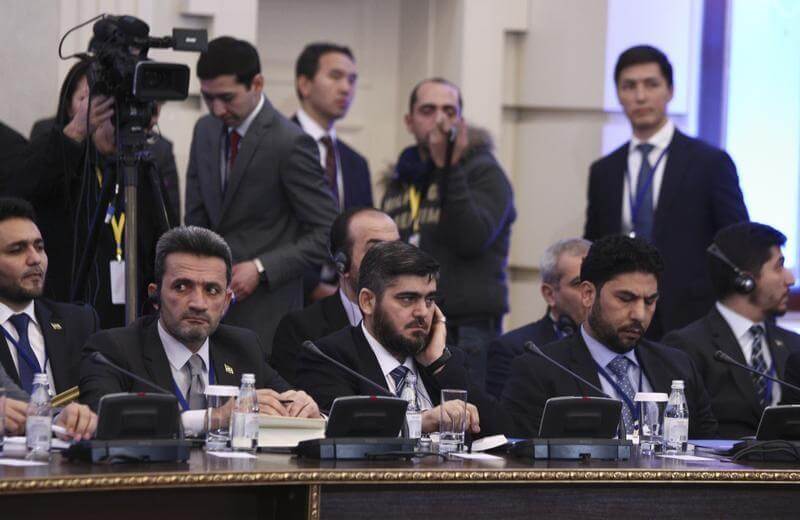
Do you want to receive our Weekly Reports in your e-mail? You can subscribe to our Weekly Briefing via THIS LINK
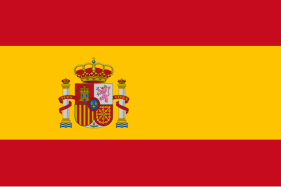
After the Catalan parliament meets and unilaterally declares independence on Friday, Spain’s senate approves new powers for the Madrid government to impose direct rule on Catalonia that same day. As pro-separatist movements protests dominated the news for weeks, police said at least 300,000 people had turned out in Barcelona, Catalonia’s largest city, for a pro-unity rally on Sunday. Catalonia’s main opposition party said the region’s “silenced majority” was now speaking, according to BBC.
Then, early this week, ousted Catalan leader Carles Puigdemont left Spain and travelled to Brussels, as he is facing sedition charges from the Spanish government after Catalonia declared independence. According to the Independent, “the move comes after Belgium’s asylum and migration affairs minister Theo Francken said the former president could seek asylum in the country.” Saillant détail is that Francken hails from the Flemish nationalist party New Flemish Alliance, which has close ties to the Catalan separatist movement, while the party advocates an independent Flanders and wants it to secede from Belgium. Late on Tuesday, Puigdemont declared he is not seeking assylum in Belgium, but simply working from the countries capital until “a fair judicial process was guaranteed.”
Early on Friday, the crisis in Spain dramatically deepened and extended across the Continent after eight Catalan ministers were jailed by a court in Madrid and a European arrest warrant was issued to extradite the region’s disputed president Carles Puigdemont from Belgium on charges of rebellion and sedition. According to the Guardian, it is understandable “that there is a more than reasonable doubt about the fairness of the highly politicized Spanish courts. The charges launched today are eminently political, and have the objective – as openly stated by various PP party officials – to severely punish and make examples of the leaders of Catalonia’s political and civil society self-determination movement.” Thousands of people took to the streets in Catalan cities to protest the jailing of the politicians, which follows the detention of two other separatist leaders last month on grounds of sedition.
BBC News
The Independent
The Guardian

On Tuesday, New York was hit by the deadliest terrorist attack since 9/11. A 29-year-old man drove a truck into a Manhattan crowd, killing eight and wounding almost a dozen. The man accused of these despicable deeds is an Uzbekistan national who lived in New Jersey and drove for Uber. President Trump reacted on Twitter, claiming that “law enforcement is following this closely.” As the attacks come at a time when the President is pushing for his US travel-ban harder than ever, popular media will not let the attacks unused to prove Donald Trump’s right on the issue.
On Wednesday, the President himself starts phrasing the terrorist attack by the lines of his political stakes. In a tweet, Trump says: “The terrorist came into our country through what is called the “Diversity Visa Lottery Program,” a Chuck Schumer beauty,” referring to the Democratic Senator who introduced the program. Where it was “too early” to talk about weapon-legislation reform after the mass-shooting in Las Vegas last month, Trump has no troubles immediately asking Congress for action after this tragedy. “The United States will be immediately implementing much tougher Extreme Vetting Procedures. The safety of our citizens comes first,” says another one of his tweets.
The Guardian
The Economic Times

On Monday, Amnesty International published their latest report on the illegal practice of home-raids as a repressive tactics by the Venezuelan authorities. According to AI, “a vicious campaign of illegal home raids on citizens suspected of dissent” has taken place over the last months, as the report focusses on the period between April and July of this year. Those targeted told Amnesty and local human rights organizations that “security forces and armed men, believed to be members of government-sponsored illegal armed groups, would violently force their way into their homes without judicial orders or any explanation of why there were there.”
On Thursday, TheConversation.com releases a strong piece on the contradictions that characterize the current position of the opposition-coalition in Venezuela. International support has been unprecedented after Maduro’s increasingly authoritarian actions, as a reaction to six months of daily street-protests by the opposition. Back at home, however, things look much more grim, as the opposition coalition has been a fractious and delicate alliance. Moreover, the decision to compete in instead of boycott the October 15 gubernatorial polls under the current circumstances turned out to be a costly misstep. The group is now fighting over whether to boycott December’s municipal elections.
Meanwhile, Venezuela’s economic crisis is worsening. Late on Thursday, President Nicolas Maduro said in a televised speech that Venezuela and its state oil company, PDVSA, will seek to restructure their debt payments. After the oil company made a $1.1 billion payment on Thursday, Maduro said that “after this payment, starting today, I decree a refinancing and a restructuring of the external debt.” Meanwhile, Maduro and others in his government have tried to pin the blame on President Trump for Venezuela’s debt problems after Trump slapped stiff financial sanctions on the country in August. If Maduro’s government can’t reach a new agreement with bondholders over the debts it will end up defaulting, which, according to CNN “would trigger a potentially ugly series of events.”
Amnesty International – full report
The Conversation
CNN
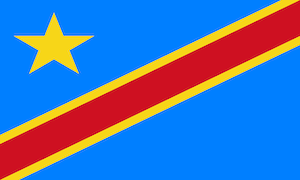
Late last week, after her visit to the country, U.S. envoy Nikki Haley said the Democratic Republic of Congo must hold long-delayed elections next year or it won’t receive international help with the vote. After a meeting Friday with the country’s electoral commission, Haley spoke to reporters in the Congolese capital, Kinshasa, stating that the DRC needs “free and fair elections to happen in 2018 at the latest, and not the end of 2018 — we need to have them sooner,” calling on President Joseph Kabila to announce elections will take place next year. “The U.S. will not support anything in 2019. The international community will not support anything in 2019,” Haley stated.
Early this week, UN World Food Program head David Beasly stated that a looming humanitarian catastrophe could see 250,000 children starve within months in the Kasai region. The region, which is the size of Germany, has historically suffered from malnutrition, but this was further exacerbated in 2016 by inter-ethnic violence resulting in large-scale killing and the mass destruction of villages and crops. “3.2 million people are at severe risk as we speak. Hundreds of thousands of children are on the brink of starvation. So we need to ramp up. We’re there, we’re ready to go, we need the donors to step in now. If they don’t, not only are people going to die, children are going to die and you’re going to have long term chaos that’s going to cost a lot more,” said Beasly.
AfricaNews.com
World Food Programme

Early last weekend, police arrested aspiring Mt Pleasant (Harare) independent MP candidate Fadzai Mahere at a soccer tournament she had organized as part of her campaign activities in the constituency. According to The Standard, “social media was abuzz with opposition activists and other people condemning the arrest,” as it was seen as another episode in Zanu PF “stifling the electoral space as a way of pushing out other players.” Mahere, who has been involved in last year’s #ThisFlag-movement, is known as a fervent ZANU-PF criticaster.
After the re-shuffle of ministerial positions, and the origination of a new ministry responsible for Cyber Security, Threat Detection and Mitigation, online surveillance remains a hot topic in Zimbabwe. On Monday, Daily News claims that media platform Facebook has assured its Zimbabwean network users that it will not share their private communication on the platform with the Mugabe-government when there would be such a request. Zimbabwe’s government has been uneasy about social media after several online movements i.a. pastor Evan Mawararire’s #ThisFlag movement, were able to make waves last year. Early last week, BBC reflected on several implications the new ministry will or might have.
On Wednesday, Robert Mugabe raised some eyebrows, by claiming he is in favor of resuming executions in the country in response to rising murder rates. At the burial of a veteran of Zimbabwe’s independence struggle in Harare, the 93-year-old Zimbabwean President stated that “if you hear people are being executed, know Mugabe’s thinking has prevailed.” Human rights groups including Amnesty International have often called on Zimbabwe, which has 92 inmates on death row, to permanently abolish capital punishment.
The Standard
BBC News
The Guardian

On Monday, new talks on the Syrian situation kicked off in Kazakhstan. The Syrian government and several armed opposition groups are meeting in Astana for talks aimed at implementing a lasting ceasefire agreement. According to Al Jazeera, “the latest round of Astana-talks is aimed at establishing four so-called “de-escalation zones” in mainly opposition-held areas of the country, with Russia, Turkey and Iran acting as guarantors.” The top-level meeting is expected to call for a six-month ceasefire and the establishment of several no-fly zones. The October 30-31 meeting has also discussed the release of hostages, prisoners, delivery of food and aid to besieged areas, the transfer of dead bodies and the search for missing persons.
On Wednesday, other peacemaking efforts hit their first complications, as a new, Russian-sponsored initiative to reach a political settlement was rejected by the Syrian opposition. Officials in the anti-Assad opposition rejected the congress scheduled for November 18th to take place in Sochi. Instead, they insisted that any peace talks be held under U.N. sponsorship in Geneva. In their turn, Turkey protested against the invitation of the Syrian Kurdish side to the talks. “Ankara, which views the dominant Syrian Kurdish groups as a national security threat, said it was unacceptable that the Kurdish YPG militia had been invited,” according to Reuters.
Al Jazeera
Reuters
Cambodia
On Tuesday, Cambodia’s top-court rejected an appeal to free opposition leader Kem Sokha. According to Reuters, the court argued that “his release could be a public risk as the threat of dissolution looms over his opposition Cambodia National Rescue Party (CNRP).” In two weeks time, he Supreme Court is due to rule on the dissolvement of the CNRP, after the government last month filed a lawsuit asking to do so on grounds it was involved in a plot to topple the government.
On that same day, a European Parliament delegation warned Cambodia, as the country could face EU action over aid and vital trade preferences if the human rights situation worsened further. “A serious deterioration of the human rights situation might have implications for development assistance programs and trade preferences,” said the delegation’s chairman Werner Langen. In a reaction to these allegations, undersecretary of state at Cambodia’s Interior Ministry, Huy Vannak, said the European Parliament should keep trade and politics separate.
Reuters
Reuters
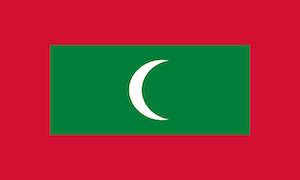
The European Union will be dispatching a team of their researchers and surveyors to Maldives this week, in order to identify the political condition of the country. The team will also assess the upcoming presidential elections of 2018, basing their research mainly on interviews with MP’s from both the ruling party and the opposition. The visit be the first from an EU delegation since the European Parliament adopted the Resolution No.RC-B8-0549/2017 on the Maldives on 5 October this year, harshly judging the political- and civil rights situation in the country.
The Apolitical

On Sunday, a big pro-army rally was hosted in Myanmar’s Yangon. According to the South China Morning Post, “Military songs rang out across downtown Yangon […] as tens of thousands rallied in defense of Myanmar’s army.” Their article goes on to pin-point an interesting contradiction, with that same army as the main subject. Where the international community has widely judged and condemned the army’s “clearance operations” against Rohingya Muslims, support for the army has surged inside Myanmar. An unlikely turnaround, for an institution once feared and hated after 50 years of repressive rule.
After weeks of intense global pressure and UN accusations of ethnic cleansing, Myanmar vowed to take back Rohingya who meet “verification” standards. However, the criteria remain vague, and on Wednesday, Myanmar government spokesman Zaw Htay pointed the finger at Bangladesh for allegedly delaying the repatriation. “The Myanmar government already declared we are ready to receive [the refugees] at any time … but the Bangladeshi government is still considering the agreement between the two countries,” Htay stated.
On Thursday, the United States State Department announced that Secretary of State Rex Tillerson would visit Myanmar later this month. Tillerson will visit the country’s capital, Naypyidaw, where he will meet with senior leaders and officials on actions to address the humanitarian crisis in Rakhine State and push for an end to the violence. According to CNN, Tillerson has been increasingly vocal in condemning attacks on Myanmar’s minority Rohingya Muslims. “What’s most important to us is that the world can’t just stand idly by and be witness to the atrocities that are being reported in the area,” Tillerson said at a Washington, DC, think tank earlier this month.
South Chinese Morning Post
Reuters
CNN
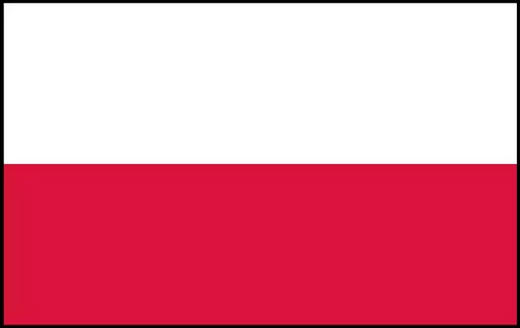
According to United Nations Special Rapporteur Diego Garcia-Sayan, the Polish independence of the judiciary and rule of law are threatened. Garcia-Sayan visited Poland last week and the UN-envoy commented on the government’s planned reforms to Poland’s judiciary, Poland’s Constitutional Tribunal as the “first victim” of sweeping changes under the conservative Law and Justice (PiS) government, and the president’s proposed changes the Supreme Court and the National Council of the Judiciary. Despite the fact that Poland’s Foreign Minister Witold Waszczykowski denied the allegations, Garcia-Sayan urged Poland’s political establishment to open up negotiations on proposals to reform the country’s courts to avoid further damage to the country’s judicial system.
The allegations come at a time when the international pressure on Poland increases. Early last week, Human Rights Watch published a new report on the “Eroding Checks and Balances” in the Eastern-European country. According to HRW, the Rule of Law and Human Rights are under attack in Poland. The report provides analysis of the PiS government’s legislative and policy measures that impact human rights and the rule of law in several areas.
On Sunday, the man who set himself on fire ten days earlier and has been identified as Piotr S, died from his injuries. Before setting himself on fire outside of the Palace of Culture and Science in Warsaw, Piotr S distributed leaflets accusing the right-wing government of “breaking the rules of democracy, damaging Poland’s reputation, destroying the country’s judicial system, and limiting civil rights by discriminating against minorities, immigrants, women, Muslims, and the LGBT community,” according to Buzzfeed.
Reuters
Human Rights Watch
Project Syndicate.org
Iraq – On Sunday, Massoud Barzani, the region’s president since 2005, and the man who led an independence push for the Kurdish region of Iraq for more than a decade, announced that he would quit as president. Barzani’s departure comes after weeks of humiliating battlefield defeats for Kurdish fighters against overpowering Iraqi forces. The Kurds also lost their main economic assets – New York Times
Hong Kong – While on Tuesday the Asian Football Confederation has warned the Hong Kong Football Association over the conduct of fans who booed the Chinese national anthem last month, Hong Kong democracy activist Avery Ng was sentenced to three weeks in prison for throwing a sandwich towards the city’s then-leader which hit a police officer.
Kenya – After HRW’s mid-October report on severe violations by security forces in the electoral period of August 2017, Amnesty International published a similar report this week. While Uhuru Kenyatta was proclaimed as the winner of the latest round of election in Kenya, a whole nation was nervous this week to see what main opponent Raila Odinga’s reaction to his fourth defeat would be.
Tanzania – After a speech on October 29 in Dar es Salaam, Tanzanian opposition-Alliance for Change and Transparency Zitto Kabwe’s was arrested on Tuesday. Kabwe’s speech covered issues including “the quality of life of Tanzanians, the state of the economy and how to defeat the ruling party,” ATC Spokesman Abdallah Khamis said. Tanzanian President John Magufuli has cracked down on opposition to his administration since he came to power in November 2015. Kabwe was released later this week and charged with an act of ‘cybercrime’.